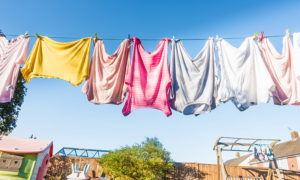

Most, if not all, homeowners associations are legal entities. As such, both board members and homeowners are afforded legal rights — all of which should be clearly outlined in your community’s governing documents. If you need further guidance, here are the homeowners rights against HOA communities.



September 22, 2019
Most, if not all, homeowners associations are legal entities. As such, both board members and homeowners are afforded legal rights — all of which should be clearly outlined in your community’s governing documents. If you need further guidance, here are the homeowners rights against HOA communities.
What are the homeowners rights against homeowners associations? As an HOA board member, here are 13 legal rights you need to know:
Anyone who purchases property is afforded a bundle of rights. The legal rights of property owners include:


It is within homeowners legal rights to change the association’s rules and regulations. Homeowners can choose to take action if they deem certain rules as unfair, outdated, or discriminatory. The HOA board cannot stop them.
However, make sure to check the governing documents for the procedure for proposing new rules or amendments. For instance, a majority vote may be required in order to change rules or implement new ones. Also, board members should ensure that these new rules are still compliant with state and local laws.
As members of the community, homeowners are required to pay assessment fees each month. But that doesn’t mean that they will just pay any amount that the HOA charges them. Homeowners have a right to question a sudden increase in monthly HOA fees or why the HOA is levying a special assessment. This can be a form of financial oversight and so that homeowners know where their money is being used.
Homeowners can take formal action, but they are still advised to continue paying their assessments. Keep in mind that the HOA board also has a right to place a lien on a delinquent homeowner’s property or even file for a foreclosure to collect unpaid assessments.
To prevent drastic actions from both the association and homeowner, the board must tread carefully when it comes to increasing HOA fees or levying special assessments. Depending on your governing documents, HOAs might need to give adequate notice to homeowners via certified mail. There may also be a limit on how much you can increase HOA fees each year.
Also, board members should properly communicate the reasons for an increase. They can provide documents to support these reasons, and reassure homeowners that this is for the benefit of the community.
Board members cannot prohibit homeowners from requesting HOA documents including:
Homeowners have a right to inspect these documents to see how the board is managing the community’s finances and assets. Access to budgets, expenditures, transactions will allow homeowners to see how their money is being used.
In some cases, though, homeowners may first need to submit a written notice, as well as pay for copying and postage costs. HOA boards may refuse access to documents that are bound by attorney-client privilege and those with pending litigation.
A homeowner has a right to a hearing before the HOA takes disciplinary action, such as imposing fines or suspension of privileges. The board must send a written notice ahead of the hearing via first class mail. Homeowners also have the right to a fair hearing even if they have clearly violated the association’s rules.
One can always use their homeowners’ rights against HOA communities. This means that a homeowner can choose to sue a board member due to disputes or perceived wrongdoings such as exceeding the limits of their authority or making unfair decisions. It even means that they can sue board members for bad decisions or sue HOA for selective enforcement.
In the case of the latter, board members can take comfort in certain things. For instance, the Business Judgement Rule will protect them from personal liability as long as their actions were in the best interest of the community. The association’s D&O insurance will also cover your legal expenses. However, to prevent costly legal expenses for both parties, the board can recommend negotiation and mediation instead.

The HOA cannot prevent homeowners from displaying the American flag — even if they cite architectural control reasons. This is one of the HOA laws associations must know about.
Homeowners are protected by the Freedom to Display the American Flag Act of 2005 and this supersedes any rule that you may have in your governing documents. However, HOAs can impose restrictions such as the location and height of the flagpole. Residents may also need to file a request before installing the flagpole on their property.
Homeowners’ right to display political signs will depend on which state your HOA is located. States like Texas and Washington prohibit HOAs from imposing bans on political signs whereas, in states like Virginia and the District of Columbia, no such laws exist.
In most cases, though, HOAs can still impose some restrictions such as limiting the number and size of political signs, as well as how long homeowners can display them on their property.
According to the Fair Housing Act, homeowners with disabilities have a right to request reasonable accommodations. This can be in the form of a ramp so that homeowners who use wheelchairs can gain access to communal areas. Homeowners can also request for their service animal to accompany them even in pet-restricted areas within the community.
HOA boards have to meet these accommodations as long as there are no other viable alternatives, and as long as these do not pose any risk to the other homeowners. In certain situations, such as in the case of service animals, HOA boards can request homeowners for documentation to verify.
Homeowners associations must not discriminate against homeowners in any way, shape, or form. That means HOAs can’t deny housing, enforce rules selectively, or take any action based on discriminatory judgments.
Again, the Fair Housing Act comes into play here. According to this law, homeowners must not be discriminated against based on race, color, sex, religion, national origin, familial status, and/or disability. Some states have their own Fair Housing laws, which extend to other protected classes as well.
Previously, associations banned homeowners from placing antennas and satellite dishes on their roofs. Boards reasoned that such devices affected the uniform exterior appearance of the community and as such, lowered property values.
With the passing of the FCC’s Over-the-Air Reception Devices Rule, though, HOA boards can no longer restrict homeowners from doing so. It is one of the homeowners laws associations must follow. Homeowners have a right to place antennas and satellite dishes on their roof (as long as the device is under a meter). However, boards may be able to place some restrictions such as the placement of these devices.

Many HOAs prohibit solar drying — or using a clothesline to dry clothes outside — because it looks unsightly and affects the uniform exterior appearance of the community. If your community is located in a state with a Right to Dry law, though, the board cannot ban solar drying in their community, as it is within homeowner rights. These states include:
In some states, homeowners associations can’t prohibit residents from growing or planting native plants. Examples of states that have these restrictions for HOA rules for plants are California and Texas. In Florida, on the other hand, associations can’t restrict homeowners from using plants that don’t coincide with the overall landscaping design of the community.
Apart from these 13 legal homeowners rights against HOA, there may be many more for HOA boards to consider. Though the actual number may seem daunting, HOA board members must always try to keep track of these legal HOA rights. In order to properly handle the legal homeowner rights in HOA communities, here are three simple but important reminders:
1. HOA board members must take time to read and fully understand the community’s governing documents (CC&Rs, bylaws, HOA rules, and regulations).
2. HOA board members should be updated on state and local laws. If there are any changes, you must amend governing documents as quickly as possible.
3. HOA disputes and misunderstandings can lead to expensive legal proceedings if not addressed in a timely manner. For the sake of both parties, HOA board members should take time to communicate with homeowners in a professional but cordial manner.
Homeowners have a plethora of rights against an HOA, including the Right of Possession, the Right of Control, the Right of Exclusion, the Right of Enjoyment, and the Right of Disposition. Homeowners also have a right to change HOA rules and regulations, a right to question HOA fees and special assessments, a right to access HOA documents and financial reports, and a right to disciplinary hearings.
Beyond that, homeowners have a right to sue the HOA, a right to display the U.S. flag and political signs (within reason), a right to reasonable accommodations, a right to be treated fairly, a right to solar installations and satellite dishes, a right to solar drying, and a right to native plants.
It is definitely well within a homeowner’s right to sue their HOA. Keep in mind, though, that homeowners need evidence to support their allegations. Additionally, HOAs have insurance policies that cover such liabilities, and the homeowner might need to pay for damages and legal fees if they lose.
Some associations can implement HOA backyard rules, provided state laws or their governing documents allow them to do so. But, when it comes to native plants, some states offer protection to homeowners.
The legal authority of homeowners associations is bestowed upon them by state law and their governing documents. The extent of this authority can vary from HOA to HOA, though, so homeowners must check to make sure.

Homeowners have a handful of options if they don’t agree with the HOA. Most of the time, homeowners can have their concerns addressed by simply approaching the HOA board with a formal complaint. In some cases, homeowners will need to enter mediation or arbitration to resolve the dispute with the HOA. Of course, if the matter remains unresolved and the homeowner believes the HOA is in the wrong, they can pursue litigation.
Most homeowners associations can legally fine residents when they violate the governing documents. This is a common consequence or penalty used to discourage breaches. But, an HOA can only impose fines if state laws or its governing documents give them the power to do so.
Respecting the legal homeowners rights against HOA isn’t just the right thing to do, it’s also one of the best ways to protect the wellbeing of your community. In the same way that HOA board members have protection from personal liability, homeowners also have legal rights as members of the community. If everyone is respectful of each other, you will be able to have a peaceful and thriving community.
On the hunt for an HOA management company? Begin your search for the right one today using our online directory.
RELATED ARTICLES: